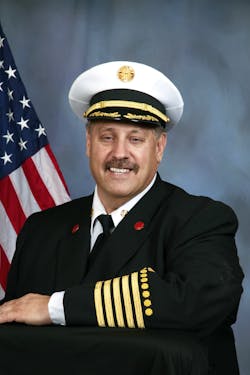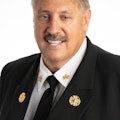There are many unwritten rules in life. For instance, you should never try to get into an elevator until everyone gets out. There is no sign outside the doors telling you to wait, you were never trained on this in school, and there is not a fine if you don’t wait. It’s just one of those things you learned along the way.
Work any length of time running EMS calls and the same thing happens—you learn things through experience or being observant. These are the unwritten rules that you were never taught in EMT or paramedic school that you either learned running calls or because some firefighter with gray hair and 30 years on the job told you while sitting on the ramp between calls. Let’s review a few of these rules.
7 rules
Rule 1: The louder the child screams, the less sick or hurt they are. Inversely, the quieter they are, the more you should be concerned. The child that screams and cries the loudest may be hurting, but they are not usually in a life-threatening situation.
Rule 2: You should always be suspicious of the person who shows up on any scene and announces that they are a doctor. My experience is usually that the doctor who is intervening has their own dermatology or podiatry practice, and the last time they saw CPR done was on reruns of Emergency! It is always a smart idea to confirm the specialty of a civilian who suddenly appears next to you and your patient and wants to start giving direction. Thankfully, many medical protocols now have procedures for good Samaritan doctors who wish to start practicing medicine in the field.
Rule 3: Individuals being arrested often suddenly—and conveniently—develop an illness. This is called Miranda Angina, as it occurs right after the detained individual is arrested and read their Miranda Rights. The person suddenly develops chest pain, and the arresting officer has no choice but to call for EMS. A spin-off of Miranda Angina is when a police officer gives a person a choice between going to jail or the hospital. Almost 100 percent of the time, they choose the hospital.
Rule 4: Per the Rule of Threes, any call that occurs at 3 a.m. will be on the third floor without an elevator, and the patient will weigh more than 300 pounds. Of course, you have no choice but to call for an engine company to assist in getting the patient down the stairs and you end up with an engine company that is not all too happy with you.
Rule 5: Know the importance of the Golden 5 minutes. Somewhat of a play off the Golden Hour, the Golden 5 minutes is those 5 minutes just prior to shift change and your relief has not reported to work yet. These last 5 minutes of any shift, with no relief in sight, is the most critical time that calls usually come in, and you are forced to make the run. Of course, you get approximately one block away from the fire station, and you’ll see the firefighter scheduled to relieve you coming in the opposite direction in their personal vehicle.
Rule 6: You should always leave the door open in any house or apartment you are in, regardless of the nature of the call. Seasoned veterans know that anything can go south on any call, and you don’t want to be fumbling to get the door open when some angry or drugged-out family member decides you’re a bad person and feels compelled to do something about it.
Rule 7: When your patient tells you they are going to die, you need to listen to them. Patients know their body better than you, and they sometimes have a sense of impending doom. Do not disregard their comments if they tell you that they feel like they aren’t going to make it.
Know the rules
There are many other unwritten rules that I could write about and explain. I am sure you have some of your own. Regardless of your unwritten rules, always do your best and never do harm to a patient.
About the Author
Gary Ludwig
GARY LUDWIG has served in three fire departments over his career: St. Louis, Memphis, and Champaign, IL. His fire, EMS and rescue career spanned a total of 46 years, and he has been a paramedic for over 44 years. Ludwig served as president of the International Association of Fire Chiefs in 2019-20. He has a Master’s degree in Business and Management, has written over 500 articles for professional fire and EMS publications and is the author of seven books.
Connect with Gary
Email: [email protected]
Facebook: Gary Ludwig
Twitter: @ChiefGaryLudwig
Website: garyludwig.com

